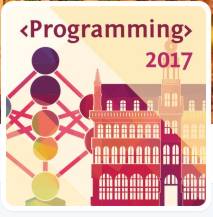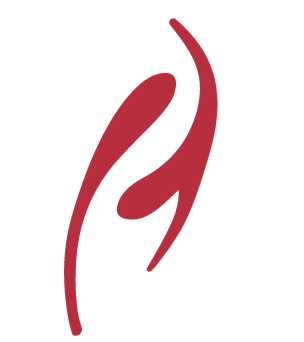| New Programming Journal Launched |
| Monday, 06 February 2017 |
|
The first issue of a new open access journal with the title The Art, Science, and Engineering of Programming is now available on arxiv.org. It is published under the auspices of AOSA in conjunction with its annual <Programming> conference, the first of which takes place in Brussels in April.
AOSA (Aspect-Oriented Software Association) is a non-profit organization whose mission is to be the primary sponsor for the ‹Programming› Conference and the concurrent Modularity Symposium. AOSA was formerly asod.net which organized the annual Modularilty Conference which stemmed from the Conference on Aspect-Oriented Software Development starting in 2002. In full the title of the AOSA conference is International Conference on the Art, Science, and Engineering of Programming, but it has been given the name <Programming> for short. It is positioned as: a conference focused on everything to do with programming including the experience of programming. The two keynotes announced for the inaugural event taking place in Brussels, Belgium on 3-6 April 2017 are:
The conference has nine co-hosted workshops and is also an opportunity to present research papers. In order to present a paper at <Programming> authors are required to have them accepted for the new The Art, Science, and Engineering of Programming journal. The journal is intended to have three issues per year but for Volume 1 only two issues are planned.
As tweeted by its editor, Crista Lopes, Issue 1 was made public at the end of January with the second issue currently in preparation. They are intended to be published as a combined Volume 1 in May. According to the conference website, papers are welcome from any part of the programming research lifecycle, as are papers on programming practice and experience. The journal's call for papers gives the following information: The Art, Science, and Engineering of Programming accepts papers that advance knowledge of programming. Almost anything about programming is in scope, but in each case there should be a clear relevance to the act and experience of programming. Additionally, papers must be written in a scholarly form. There are four perspectives for papers:
More details of what to expect from the new journal is available in the abstract of the Vol 1. Issue 1, Editorial co-authored by Cristina V Lopes and eight others, including Robert Hirschfeld, leader of the Software Architecture Group of the Hasso Plattner Institute who is the current chair of AOSA. The Art, Science, and Engineering of Programming is a new journal created with the goal of placing the wonderful art of programming in the map of scholarly works. Many academic journals and conferences exist that publish research related to programming, starting with programming languages, software engineering, and expanding to the whole Computer Science field. Yet, many of us feel that, as the field of Computer Science expanded, programming, in itself, has been neglected to a secondary role not worthy of scholarly attention. However, much of the progress in Computer Science lies on the basis of computer programs, the people who write them, and the concepts and tools available to them to express their ideas. The Art, Science, and Engineering of Programming focuses primarily on programming: the art itself (programming styles, pearls, models, languages), the emerging science of understanding what works and what doesn’t work in general and in specific contexts, as well as more established engineering and mathematical perspectives.
More InformationIntroducing The Art, Science, and Engineering of Programming journal The Art, Science, and Engineering of Programming Related ArticlesPeerJ - Open Access Peer Reviewed Computer Science JSTOR Extends Free Access - But Not Much Big Data - New Open Access Journal Dr Dobb's Bites The Dust After 38 Years Why Programmers Don't Join The ACM
To be informed about new articles on I Programmer, sign up for our weekly newsletter, subscribe to the RSS feed and follow us on Twitter, Facebook or Linkedin.
Comments
or email your comment to: comments@i-programmer.info |
| Last Updated ( Monday, 06 February 2017 ) |




